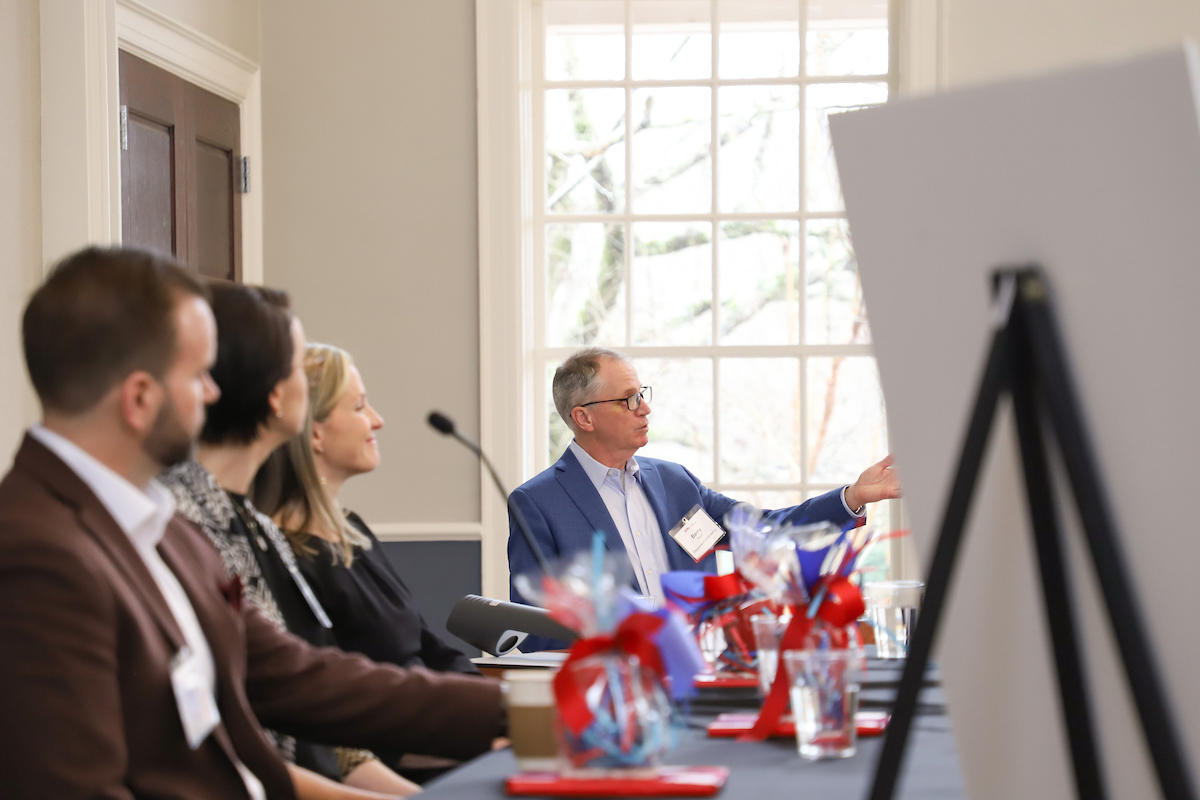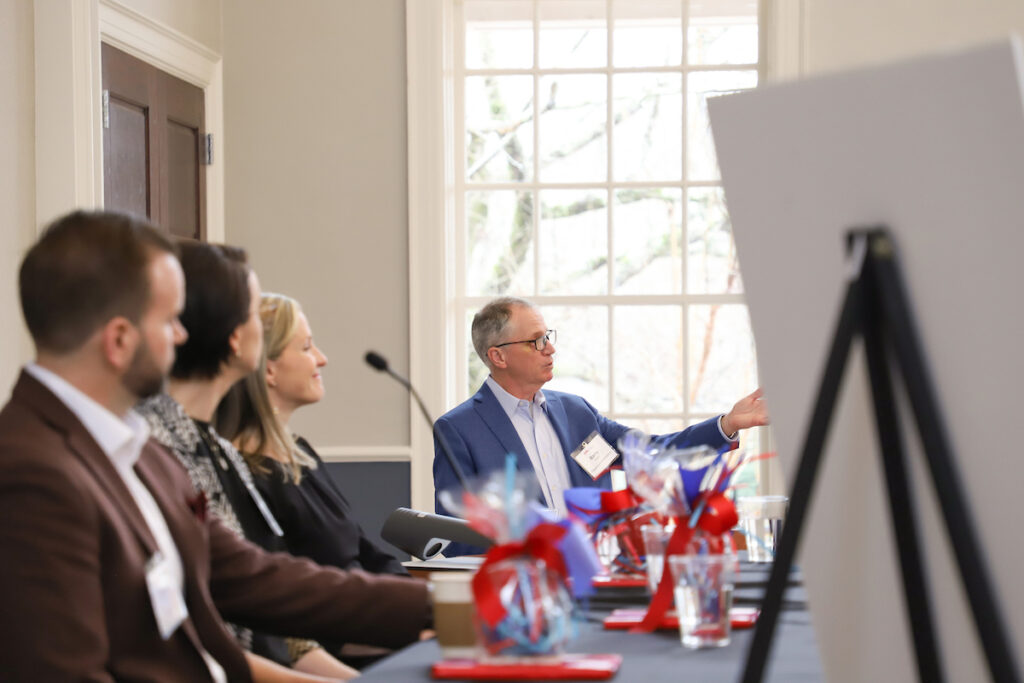
Barry Babin (center), professor and chair marketing at the University of Mississippi School of Business Administration, moderates a panel of business leaders during the inaugural BASE Summit. Photo by Kirsten Simpson/University Development
To prepare University of Mississippi students to succeed and lead in the rapidly changing market, the School of Business Administration has launched a program to connect students and faculty with industry.
The Core for Business Analytics, Sales and Supply Chain – referred to as BASE – combines faculty knowledge with industry interests to develop educational programs that are relevant to today’s market.
Sales, supply chain and analytics are among the fastest-growing fields in business. In this environment of change and innovation, partnerships with the business community – along with experiential learning for students – are paramount to providing a quality business education.
“BASE is about building a bridge between the university and industry so that we don’t become overly academic,” said Barry J. Babin, chair of the school’s Department of Marketing. “So, we’re listening to and engaging with our industry partners and building relationships with the business community.”
Babin, who came to Ole Miss in 2019 to chair the department, developed this concept in collaboration with other faculty to support increased industry engagement in the department and business school.
The school recently hosted the first BASE Summit, marking the public launch of the initiative to prepare students for careers in evolving fields, to connect employers with up-and-coming talent and to solve industry challenges through collaboration with faculty and business students.
Ole Miss students learned about sales and technology, and they connected with employers from around the country representing many industries, such as technology, finance, real estate and insurance.
The BASE acronym plays off of baseball, a popular sport at Ole Miss, and these three main growing areas of industry: First base represents “sales,” while second base is “supply chain” and third base is “marketing analytics.”
This reflects a typical business cycle: A product or service is sold and delivered to the client. Then, the process is assessed to identify opportunities for improvement and growth for the next cycle.
In 2022, the BASE Summit is focusing on sales, a particularly strong area for UM students, Babin said.
“The strong social life and sense of community at the university help students develop their social skills, so they do really well in interviews for sales positions,” he said.
By engaging students with industry partners, another goal of BASE is to increase the students’ interests in analytics and supply chains as they learn more about these growing business fields.
In the summit’s first session, three executives participated in an interactive panel, providing 65 students insights from their careers. Panelists were Sage Nichols, executive for client and business development and collateral technology at CoreLogic; Jeremy Duane, director of sales at Mylo; and Lauren Kail, regional vice president at RJ Young.
In the second session, representatives from 11 companies engaged and recruited 130 students during a career fair. Attendees included companies with a strong presence in Mississippi and the Mid-South region, such as C Spire, FedEx and Regions Bank. Some companies came from farther away, including RJ Young from Nashville, Tennessee, 49 Financial from Houston, Texas, and Mylo from Kansas City, Missouri.
While the inaugural BASE Summit focused on sales, in coming years organizers plan to explore the topics of supply chains and analytics, as well as host other events, such as hackathons and sales competitions.
As BASE evolves, industry representatives will be invited on campus for unique opportunities to recruit students, engage with classes and conduct experiential learning.
To expand this program, the business school is working with industry representatives to secure founding partners to support BASE. Mylo and RJ Young have stepped forward as the first two. The goal is to bring in additional partners in the coming year.
BASE also will involve faculty consulting, corporate learning, competitions and fellowships. All this will nurture collaboration between faculty, students and industry leaders.
“BASE will be mutually beneficial for partner companies and a great way to connect industry with the School of Business Administration,” said Hughes Miller, UM director of industry engagement. “It will enhance the classroom experience for students and give companies time to engage with students and faculty.
“And it can foster longer-term partnerships for other types of programs.”
The university strives to be a resource and partner for industry. To learn more about the university’s industry engagement initiative, visit https://industry.olemiss.edu.
By Leigh Ann Hubbard




